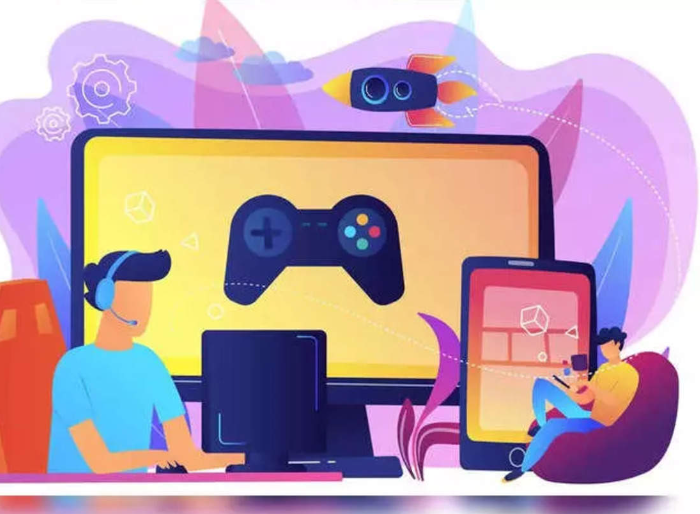Others
How Online Gaming Influences Cognitive Skills and Problem-Solving

Online situs slot has rapidly evolved from a niche entertainment medium to a global phenomenon, attracting millions of players across various demographics. While often seen as a mere pastime, numerous studies have begun to uncover the profound impact of online gaming on cognitive skills and problem-solving abilities. This article explores how online gaming can enhance mental faculties, improve decision-making, and foster creative problem-solving.
The Cognitive Benefits of Online Gaming
Online gaming engages players in complex virtual environments that challenge their cognitive abilities. This engagement can lead to various cognitive benefits, including improved memory, attention, and spatial awareness.
Enhanced Memory Retention
Many online games require players to remember details about characters, quests, and game mechanics. This constant recall can improve both short-term and long-term memory. For instance, role-playing games (RPGs) often involve intricate storylines and character developments, requiring players to retain information to progress. As players navigate these narratives, they engage their memory faculties, leading to improved retention skills in real-life scenarios.
Improved Attention and Focus
Online gaming demands a high level of concentration and attention to detail. Fast-paced games, such as first-person shooters (FPS), require players to process vast amounts of information quickly. Players must track multiple elements simultaneously, from enemy movements to resource management, fostering heightened attention and focus. Studies indicate that this intense focus can transfer to real-life tasks, enhancing overall productivity and efficiency.
Boosted Spatial Awareness
Spatial awareness is crucial for tasks ranging from driving to navigating new environments. Online gaming, particularly in genres like first-person shooters and adventure games, often involves navigating three-dimensional spaces. Players must understand spatial relationships, coordinate movements, and predict trajectories. This engagement can improve players’ spatial reasoning skills, benefiting them in various real-world applications, such as architecture, engineering, and even sports.
Problem-Solving Skills in Online Gaming
Online Spaceman presents players with a myriad of challenges and puzzles, requiring creative problem-solving skills to succeed. These challenges can significantly enhance players’ ability to think critically and develop strategic solutions.
Strategic Thinking and Planning
Many online games, particularly strategy games, encourage players to think several steps ahead. Players must analyze their options, anticipate opponents’ moves, and formulate effective strategies to achieve their goals. This strategic thinking fosters a mindset that is adaptable and forward-looking, enabling players to apply these skills in real-life decision-making situations, such as project management and personal goal setting.
Creativity and Innovation
Problem-solving in online games often requires players to think creatively. Whether designing a character build in an RPG or finding a unique way to tackle a level in a puzzle game, players frequently must devise innovative solutions. This emphasis on creativity can translate into improved brainstorming and idea generation in professional settings, where out-of-the-box thinking is highly valued.
Collaborative Problem-Solving
Many online games encourage teamwork, requiring players to work collaboratively to solve problems and overcome challenges. Multiplayer games, such as cooperative shooters and MMORPGs (Massively Multiplayer Online Role-Playing Games), necessitate communication, negotiation, and coordination among players. These collaborative environments enhance interpersonal skills and the ability to work effectively within a team, essential qualities in today’s interconnected workforce.
Emotional Resilience and Adaptability
Online gaming not only enhances cognitive skills but also fosters emotional resilience and adaptability. Players frequently face failures and setbacks, whether losing a game or struggling to complete a difficult level. Learning to cope with these challenges can improve emotional regulation and persistence.
Developing Resilience
The repeated experience of failure in gaming can teach players valuable lessons about resilience. They learn to analyze their mistakes, adapt their strategies, and try again. This iterative learning process instills a growth mindset, encouraging players to view challenges as opportunities for improvement rather than insurmountable obstacles. Such resilience is crucial in real life, where setbacks are inevitable.
Adaptability to Changing Environments
Online games often feature dynamic environments that change based on player actions or random events. Players must adapt their strategies and approaches on the fly, enhancing their adaptability. This skill is increasingly important in today’s fast-paced world, where the ability to pivot and respond to new information can make a significant difference in personal and professional success.
The Role of Educational Games
Educational online games specifically designed to enhance cognitive skills further demonstrate the potential of gaming as a learning tool. These games combine entertainment with educational content, making learning enjoyable and effective.
Game-Based Learning
Game-based learning leverages the principles of gaming to teach concepts and skills. These games often incorporate puzzles, challenges, and quests that align with educational objectives, engaging players while promoting critical thinking and problem-solving. For example, math-based games can reinforce arithmetic skills, while strategy games can teach resource management and planning.
Bridging the Gap Between Learning and Play
By integrating educational content into gaming, developers create a bridge between learning and play, motivating players to engage with material they might find dull in traditional educational settings. This approach can lead to improved retention and application of knowledge, as players apply what they’ve learned in a fun and interactive environment.
Conclusion
Online gaming has far-reaching implications for cognitive skills and problem-solving abilities. Through enhanced memory, improved attention, strategic thinking, and emotional resilience, players can develop valuable skills that extend beyond the virtual world. As the gaming landscape continues to evolve, understanding and harnessing these cognitive benefits can lead to more effective learning strategies and improved outcomes in various aspects of life. Whether for leisure or education, online gaming has the potential to cultivate a generation of skilled, adaptable problem-solvers ready to face the challenges of the future.
-

 Rappers1 year ago
Rappers1 year agoGloRilla Net Worth: Height, Age, Bio, Real Name & Career
-

 Businessman1 year ago
Businessman1 year agoBrandon Fugal Net Worth: How Rich is Skinwalker Ranch Owner?
-

 Rappers3 years ago
Rappers3 years agoBigXthaPlug Net Worth: Height, Age, Real Name & Career
-

 TV Stars1 year ago
TV Stars1 year agoKaleb Cooper Net Worth: How Rich is the TV Star Actually?
-

 Internet Stars3 years ago
Internet Stars3 years agoMufti Menk Net Worth: How Rich is the Islamic Speaker Actually?
-

 TV Stars1 year ago
TV Stars1 year agoCarla Diab Net Worth: How Rich is the TV Star Actually in 2025?
-

 Businessman2 years ago
Businessman2 years ago7 Proven Lead Generation Strategies To Implement in 2023
-

 Rappers1 year ago
Rappers1 year agoDD Osama Net Worth: Height, Age, Real Name, Career & More























You must be logged in to post a comment Login